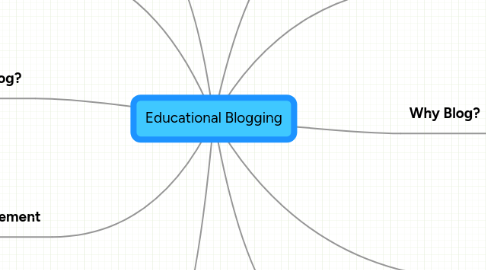Educational Blogging
by theo kuechel


1. Update regularly
1.1. productivity
1.2. New node
2. Issues with anonymity
2.1. Just like anything, you shouldn't assume anonymity
2.2. Don't write anything you'd regret later
2.3. If it gets quoted as your opinion, are you happy?
2.4. If it gets quoted as your employer's opinion, are you happy?
2.5. If your boss reads it...
3. Time management
3.1. hyperlinking
3.2. referencing
3.3. formatting
3.4. techy stuff / backend
3.5. Don't worry about no blogging regularly
4. Content: What to Blog?
4.1. topical
4.2. reflective
4.3. technical
4.4. media
4.5. advocacy
4.6. debates
5. promoting your blog
5.1. Mirandanet directory?
5.2. Twitter
5.2.1. Add your blog as your profile URL
5.2.2. Tweet blog updates (sparingly!)
5.3. guest posting on other blogs
5.4. commenting on other blogs (you can usually link to your blog in the title)
5.5. teacher forums - put the address in your signature
5.6. Show up on the search engines
6. Audience
6.1. Identify
6.2. Define
6.3. engage with - respond to comments
6.4. Invite them to read
7. Invite contributions
7.1. Ask for comments
7.2. Guest writers
8. team/ shared blogs
8.1. class blogs
8.2. Being consistent with your blog's voice
9. Why Blog?
9.1. Reflection
9.1.1. Writing for a blog provides a space for reflection
9.2. Psycho-social release
9.3. Ego
9.4. Sharing ideas
9.4.1. Quote: Anne Frank: "People will always follow a good example; be the one to set a good example, then it wont be long before others follow" ......
9.4.2. To "sell" your ideas, or those of your organisation/school
